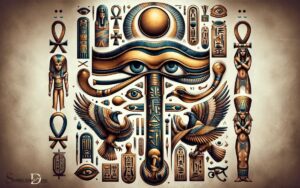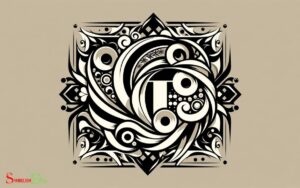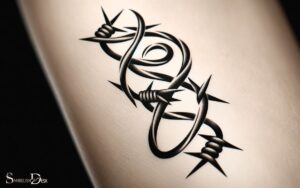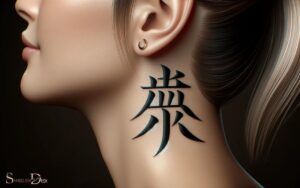Chinese Tattoo Symbols and Meanings: Explain!
Explore the profound meanings of Chinese tattoo symbols and their impact across cultures. Chinese characters, with their intricate designs and historical depth, offer a glimpse into a rich cultural past.
They are a popular choice for tattoos, but it’s vital to understand their correct meanings to avoid cultural faux pas. Learn about the symbolism, origins, and how to choose appropriate Chinese tattoos to honor this artistic tradition.
Chinese tattoo symbols are steeped in history and tradition. Each character carries a specific meaning, often tied to Chinese philosophy, literature, or proverbs.
For example:
- 龙 (lóng) means ‘dragon,’ a symbol of power and wisdom.
- 爱 (ài) stands for ‘love,’ reflecting deep emotional bonds.
- 和平 (hépíng) translates to ‘peace,’ a universal aspiration.
When selecting a Chinese tattoo, consider the following:
- Ensure the character’s meaning aligns with your personal values.
- Confirm the accuracy of the character with a native speaker.
- Understand the cultural context to avoid disrespectful choices.
Choosing a Chinese tattoo demands respect for its cultural roots and a clear understanding of the character’s meaning.
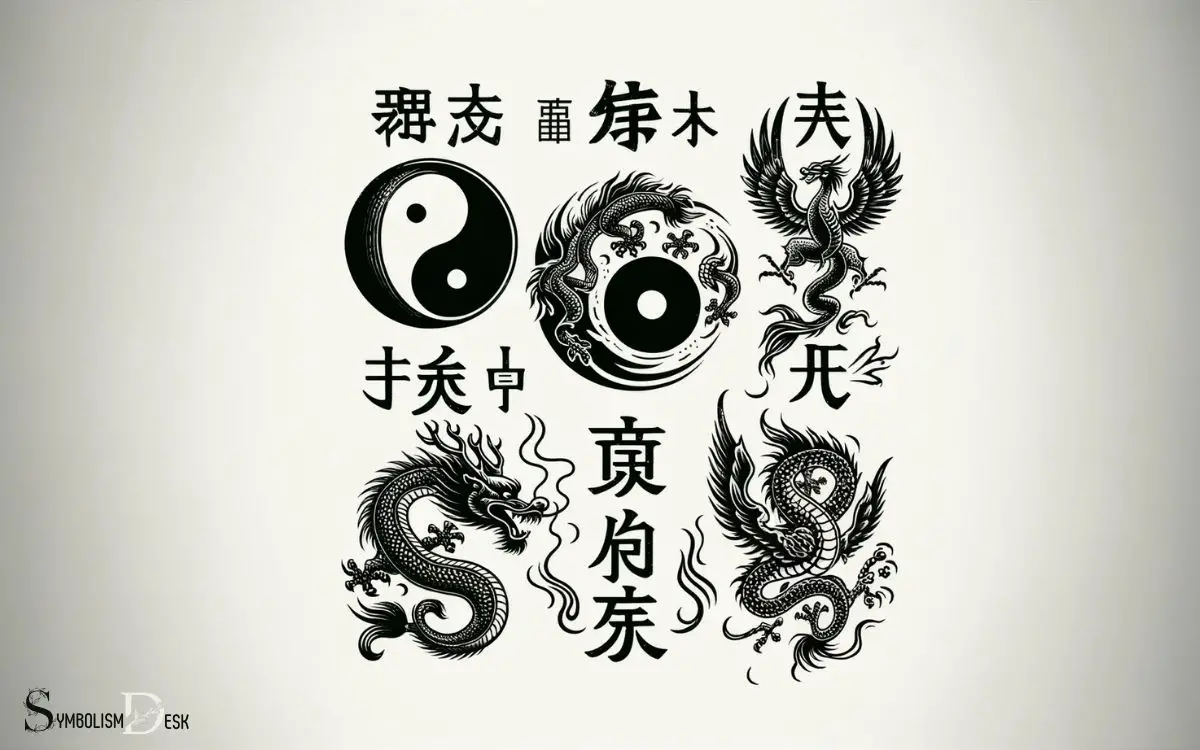
Key Takeaway
Origins of Chinese Tattoo Symbols
The origins of Chinese tattoo symbols can be traced back to ancient Chinese culture and traditions. Tattoos have been a part of Chinese culture for thousands of years, with each symbol holding deep meaning and significance.
In ancient China, tattoos weren’t only a form of body art but also a way to symbolize one’s social status, religious beliefs, and cultural identity.
The use of tattoos in Chinese culture was also influenced by the spiritual and philosophical beliefs of Confucianism, Taoism, and Buddhism. These symbols often conveyed important values such as strength, courage, wisdom, and harmony.
Understanding the historical context and cultural significance of these symbols is crucial in appreciating the art of Chinese tattooing and its meanings.
This rich history laid the foundation for the traditional Chinese symbolism seen in tattoos today.
Traditional Chinese Symbolism
Originating from ancient Chinese culture, incorporating deep meanings and significance, traditional Chinese symbolism in tattoos continues to represent important values and beliefs.
These symbols evoke a sense of reverence and connection to the rich cultural heritage of China, appealing to those seeking a deeper understanding of the country’s traditions.
The following elements are often incorporated into traditional Chinese symbolism in tattoos:
- Dragons: Symbolizing power, strength, and good luck, dragons hold a prominent place in Chinese mythology and are often featured in tattoos to convey protection and prosperity.
- Lotus Flower: Representing purity, enlightenment, and rebirth, the lotus flower holds deep spiritual and cultural significance in Chinese tradition, making it a popular choice for tattoos.
- Koi Fish: Symbolic of perseverance, determination, and success, koi fish tattoos are often sought after to represent overcoming adversity and achieving one’s goals.
- Phoenix: Signifying renewal, immortality, and grace, the phoenix holds a special place in Chinese symbolism and is often chosen to convey resilience and triumph over hardship.
Popular Chinese Tattoo Meanings
Chinese tattoos have gained popularity worldwide, and their meanings often hold deep cultural significance.
Understanding the symbolism in Chinese tattoos can provide insight into the rich history and traditions behind these designs.
Exploring the cultural significance of these tattoos can offer a deeper appreciation for their importance in Chinese heritage.
Symbolism in Chinese Tattoos
Many people choose to get Chinese tattoos for their deep symbolism and rich cultural heritage.
The symbolism in Chinese tattoos holds significant meaning and can evoke various emotions in those who wear them:
- Strength and Power: Chinese symbols such as the dragon or tiger represent strength, power, and courage, appealing to individuals seeking to embody these traits.
- Harmony and Balance: Tattoos featuring yin and yang symbols or the lotus flower symbolize harmony, balance, and inner peace, resonating with those pursuing a tranquil life.
- Prosperity and Good Fortune: Characters like ‘福’ (fú) meaning ‘good fortune’ or ‘财’ (cái) for ‘wealth’ are popular choices, symbolizing prosperity and luck.
- Love and Relationships: Symbols like the double happiness character ‘囍’ (xǐ) or the Mandarin ducks represent love, happiness, and successful relationships, appealing to individuals seeking to celebrate love and companionship through their tattoos.
Cultural Significance of Tattoos
Tattoos with popular Chinese symbols are frequently chosen for their deep cultural significance and meaningful representations. In Chinese culture, tattoos often symbolize important life values, such as strength, love, and harmony.
For example, the dragon represents power, prosperity, and good luck, while the phoenix embodies grace, rebirth, and virtue. The tiger signifies strength, courage, and protection, and the koi fish symbolizes perseverance, determination, and the ability to overcome adversity.
Each Chinese character or symbol carries a rich cultural history and conveys profound meanings.
Understanding the cultural significance behind these symbols is crucial for those considering a Chinese tattoo. By delving into the cultural implications, individuals can ensure that their chosen tattoo aligns with their personal values and beliefs.
Transitioning into the subsequent section, it’s important to carefully consider the meaning of each Chinese character before getting inked.
Choosing the Right Chinese Characters
When choosing Chinese characters for a tattoo, it’s important to thoroughly research the meanings and cultural significance of each symbol.
The following points should be considered to ensure the right selection:
- Authenticity: Seek characters from reputable sources to avoid getting a mistranslation or a symbol that’s not culturally appropriate.
- Personal Connection: Select symbols that hold personal significance or reflect one’s values and beliefs.
- Double-Check: Verify the accuracy of the chosen characters with native speakers or language experts to avoid any embarrassing mistakes.
- Understanding Complexity: Chinese characters often carry deep meanings and cultural nuances, so it’s crucial to understand the complexity behind each symbol.
Understanding these factors is essential in making an informed decision about Chinese character tattoos. This understanding can help in appreciating the cultural significance of Chinese tattoos.
Cultural Significance of Chinese Tattoos
The cultural significance of Chinese tattoos extends beyond mere aesthetic appeal, embodying deep-rooted traditions and beliefs.
In Chinese culture, tattoos have historically been associated with criminality and rebellion, but they’ve also held important cultural and spiritual meanings.
For example, the dragon is a popular tattoo symbol in Chinese culture, representing power, strength, and good luck. The phoenix symbolizes rebirth and immortality, while the koi fish symbolizes perseverance and determination.
These cultural symbols are deeply rooted in Chinese mythology and folklore, making them meaningful choices for those seeking to honor Chinese traditions through their body art.
Understanding the cultural significance of these symbols is essential for anyone considering a Chinese tattoo, as it ensures that the tattoo carries the intended meaning and respect for Chinese culture.
Avoiding Misinterpreted Chinese Symbols
To ensure that Chinese tattoo symbols are accurately interpreted and respectfully represented, individuals should thoroughly research and understand the cultural and historical significance of the chosen symbols.
This is essential to avoid misinterpretation and to show respect for the rich heritage behind these symbols.
When considering a Chinese tattoo, it’s vital to:
- Seek guidance from native Chinese speakers or reputable sources to verify the accuracy of the chosen symbols.
- Understand that Chinese characters carry deep cultural meaning and shouldn’t be chosen solely for aesthetic appeal.
- Be mindful of the potential implications and connotations of the selected symbols within Chinese culture.
- Consider consulting with a professional tattoo artist experienced in Chinese calligraphy and symbolism to ensure the accurate representation of the chosen symbols.
By taking these precautions, individuals can ensure that their Chinese tattoos are culturally respectful and accurately reflected.
This understanding leads to the subsequent section about ‘modern interpretations of Chinese tattoos’.
Modern Interpretations of Chinese Tattoos
In contemporary society, Chinese tattoos have evolved to reflect modern interpretations of cultural symbolism and personal expression.
While traditional Chinese symbols like dragons, phoenixes, and Chinese characters remain popular, modern interpretations often blend these traditional elements with contemporary design styles.
Many people now opt for minimalist and abstract designs, incorporating traditional Chinese motifs in subtle and artistic ways.
Additionally, there’s a growing trend of combining Chinese symbols with other cultural elements to create a fusion of meanings that reflect individual identities and experiences.
This modern approach to Chinese tattoos demonstrates a shift towards personalization and creativity, allowing individuals to convey their own unique interpretations of Chinese symbolism through body art.
As society continues to evolve, these modern interpretations of Chinese tattoos are likely to further diversify and expand.
Conclusion
Chinese tattoo symbols have a rich cultural history and deep meanings behind them.
However, in today’s globalized world, it’s ironic that what may be seen as a symbol of cultural appreciation could be misinterpreted.
It’s important for individuals to thoroughly research and understand the significance of Chinese characters before getting them permanently inked on their bodies.
Ultimately, a tattoo should be a personal expression that accurately reflects the individual’s beliefs and values.

